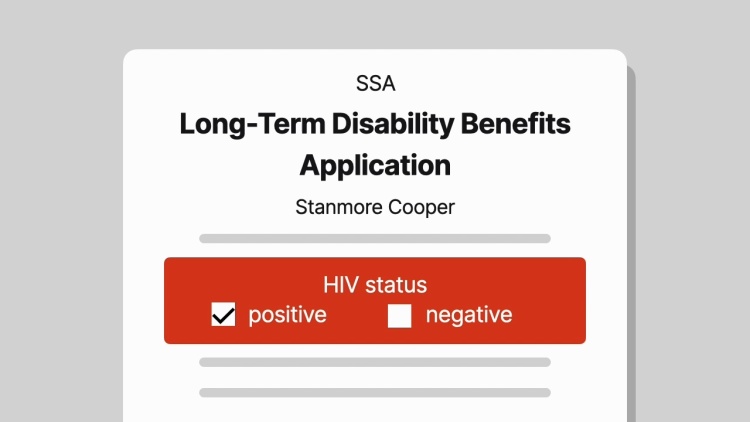Federal Aviation Administration v. Cooper
United States Supreme Court
566 U.S. 284, 132 S. Ct. 1441 (2012)
- Written by Angela Patrick, JD
Facts
Stanmore Cooper (plaintiff) was a private pilot who contracted human immunodeficiency virus (HIV). The Federal Aviation Administration (FAA) (defendant) would not issue pilot licenses to individuals with HIV. To keep his license, Cooper deliberately did not disclose his HIV status on his license-renewal applications. However, Cooper’s health deteriorated at one point, causing Cooper to disclose his HIV status to the Social Security Administration (SSA) (defendant) as part of an application for disability benefits. Later, the United States Department of Transportation (DOT) (defendant) gave a list of FAA-licensed pilots to the SSA, and the SSA gave the DOT all the information in its records about the listed individuals. As a result, the FAA learned about Cooper’s HIV status. Cooper’s license was revoked, and Cooper eventually pleaded guilty to a criminal charge for his false statements to the FAA. Cooper sued the FAA, DOT, and SSA for violating the federal Privacy Act by disclosing his records to each other. Cooper alleged that he had suffered mental and emotional distress but no economic damages. The district court found that Cooper had stated a Privacy Act violation but that he could not recover anything because he had not alleged any economic damages. The Ninth Circuit reversed, finding that economic damages were not necessary for a person to recover under the Privacy Act for mental and emotional distress. The United States Supreme Court agreed to review the damages issue.
Rule of Law
Issue
Holding and Reasoning (Alito, J.)
Dissent (Sotomayor, J.)
What to do next…
Here's why 907,000 law students have relied on our case briefs:
- Written by law professors and practitioners, not other law students. 47,100 briefs, keyed to 996 casebooks. Top-notch customer support.
- The right amount of information, includes the facts, issues, rule of law, holding and reasoning, and any concurrences and dissents.
- Access in your classes, works on your mobile and tablet. Massive library of related video lessons and high quality multiple-choice questions.
- Easy to use, uniform format for every case brief. Written in plain English, not in legalese. Our briefs summarize and simplify; they don’t just repeat the court’s language.





